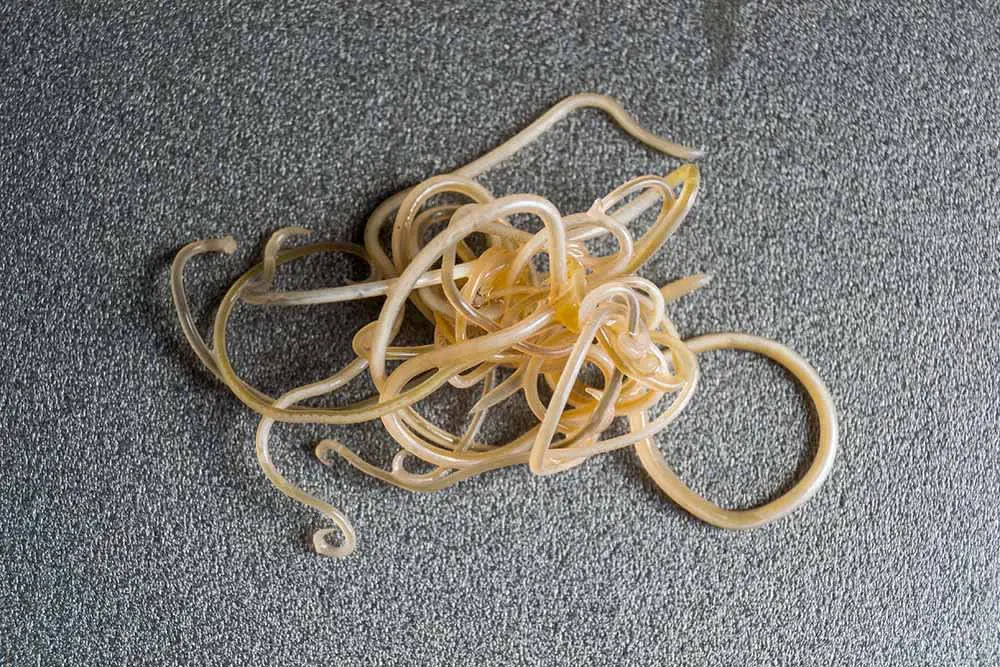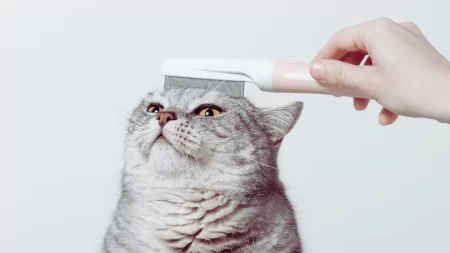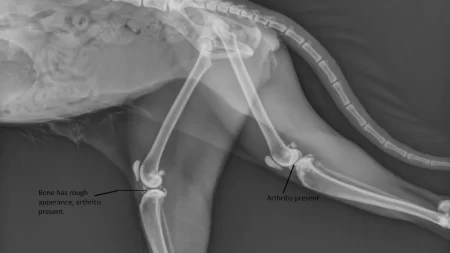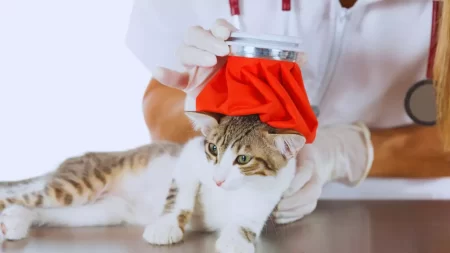Quarantining your cat with roundworms can be a daunting topic to consider. But don’t worry! In this blog, we’ll cover the basics of why, when, and how you should quarantine your four-legged friend with those pesky parasites. So let’s get started – it won’t be as scary as it seems!
Many cat owners are understandably concerned when their furry companion is diagnosed with roundworms. Fortunately, it is treatable if handled correctly, and quarantine may be appropriate for some cats with roundworms. Before deciding whether to quarantine a cat with roundworms, it’s important to understand the basics of the disease, the possible transmission methods, and other factors that might influence your decision.

Roundworms are one of the more common parasites among cats and kittens, typically spreading when adult worms pass microscopic eggs (through feces) into the environment. The eggs can then be ingested by a cat, or through contact with contaminated soil or another infected animal – other animals could include dogs or wild animals sharing the same space as your pet. Left untreated, these diseases can cause severe illness or even death so early intervention is essential.
When considering quarantine for a cat with roundworms, there are several steps you should consider to ensure everyone in your household stays safe. Once diagnosed with roundworms, discuss treatment options and potential quarantining/isolation periods with your vet in order to prevent any additional exposure among family members and pets.
- Monitor your cat’s bowel movements regularly during treatment – this will help confirm when all worms have been eliminated from their system – and consider limiting access to areas frequented by other family pets until they are fully recovered from the infection.
- It’s also important to practice proper hygiene techniques like washing hands after handling any pet waste – this applies especially if you have children under four years old who may be more susceptible to infection if exposed through contact or ingestion of contaminated soil particles.
Causes of Roundworms in Cats
Roundworms are one of the most common parasites found in cats. Cats become infected when they come into contact with an environment that contains roundworm eggs. This means that if another animal or a human has been exposed to roundworms, the cat can be infected through contact with those animals or people. If a cat ingests food or objects contaminated with roundworm eggs, it can also become infected.
Once inside a cat’s body, roundworm larvae hatch in the bloodstream and travel to the intestines, where they feed on nutrients and grow into adult roundworms which then begin to produce eggs. These eggs can pass out of the cat’s body in its feces, contaminating the environment around it and potentially infecting other cats or animals.
Another cause of roundworm infection is the ingestion of contaminated prey such as rodents or birds that have been infested with parasites. Since outdoor cats often hunt for their food, this presents another risk for exposure to roundworms.
Cats with compromised immune systems are more susceptible to becoming infected by worms since their bodies may not be able to adequately fight off an infestation; however, any unprotected cats—even healthy cats—can contract them from both environmental and dietary sources. For this reason, it is essential to practice appropriate preventive care and treatment when dealing with roundworm infections in cats.
Symptoms of Roundworms in Cats
Roundworm infection in cats is caused by a parasite called Toxocara Cati. The most common symptom of roundworms in cats is possible gastrointestinal distress. In particular, you may notice vomiting or diarrhea in your cat. Occasionally, weight loss can also be noticed if your cat is infected with roundworms as the worms take nutrients from their hosts.
In some cases, adult cats affected by roundworms may show no symptoms at all, but will still carry the infection and be capable of spreading it to other cats through contact with the feces of an infected animal. As such, it is important to inspect your cat’s feces often and have them checked regularly so that if there are any signs of roundworms they can be detected and treated quickly.
Other symptoms which could indicate a roundworm infection include:
- A swollen or distended abdomen
- Poor fur condition
- Poor appetite
- Lethargy, or difficulty walking normally
- Dehydration
If you observe any of these symptoms in your cat, it’s important to visit a veterinarian for a stool sample test so the presence of any parasites can be confirmed and properly treated.
Diagnosis of Roundworms in Cats
It is important to have an accurate diagnosis of roundworms if your cat is exhibiting suggestive symptoms such as diarrhea, vomiting, or unexplained weight loss. The Definitive diagnosis requires the examination of a stool sample under a microscope to identify the eggs that are common with this type of worm. Your veterinarian may also conduct blood tests or perform a physical examination to look for any external signs of worms. Additionally, radiographs may be taken to further assist in the identification and treatment.
Once your cat has been diagnosed with roundworms, it is important to take immediate steps to quarantine them. This involves keeping them away from other animals and thoroughly cleaning any surfaces that they may come into contact with in order to prevent the spread of the infection. To reduce their risk of reinfection, your veterinarian may recommend deworming medications or natural treatments such as garlic that can help kill off any remaining worms in your cat’s system. Additionally, regular stool samples should be taken afterward in order to monitor for further infection.
Treatment of Roundworms in Cats
Roundworms are a common type of parasitic infection found in cats. They can cause diarrhea, vomiting, loss of appetite, and general lethargy in infected cats as well as pass the parasitic worms on to humans. Treating roundworms in cats is typically a two-step process that includes deworming medication and monitoring for any adverse reactions.
It is important to consult with your veterinarian before treating roundworms in your cat, as they will have specific advice regarding the best product and dosage for your pet. Your vet may also recommend that you quarantine the infected cat away from other pets to prevent cross-contamination and will likely suggest various measures to ensure that your household is as hygienic as possible while your pet recovers. These could include:
- Regular disposal of feces
- Frequent cleaning of litter boxes
- Frequent hand washing
Once the roundworm medication has been administered, it may take several days or even weeks before all of the infections have been eliminated from your pet’s system. During this period it is important to monitor your cat for any adverse reactions or signs of re-infection that could require additional treatment. Additionally, regular fecal testing should be conducted at least every six months (or more frequently depending on how exposed your cat becomes to stray animals or wild critters). By following these steps you can help keep your pet healthy by ensuring they don’t suffer from reoccurring bouts of roundworm infections.
Quarantine Considerations
When cats have roundworms, it is important to quarantine them to ensure that these parasites do not spread to other pets or people in the home. Quarantining a cat with roundworms involves isolating him from shared spaces and surfaces in the home. This includes keeping the cat separated from other pets, making sure he does not use shared litter boxes, and even keeping him away from furniture that other cats or people use. Additionally, all bedding and toys used by the affected cat should be washed separately from those used by other cats in the household.
It is also important to pay close attention to proper hygiene when handling a cat with roundworms. While humans rarely become infected through contact with a cat’s fur or skin, wash your hands thoroughly after handling cats with roundworms and before touching other pets (or food for humans or pets) in your home. In certain cases, a veterinarian may recommend wearing gloves when handling an infected cat as an additional precaution.
Prevention of Roundworms in Cats
Roundworms (Toxocara cati) are a type of parasitic worm that affects cats and other mammals. Ingestion of roundworm larvae can cause the larvae to travel through the cat’s bloodstream to its major organs, leading to serious medical conditions such as fever and diarrhea. Roundworms can also be passed down from the mother cat to her kittens, placing young cats at an even higher risk for infection.
Prevention is the key to protecting your cat from roundworm infection. A healthy, balanced diet and regular veterinary visits will help ensure your cat remains parasite-free. Additionally, keeping your cat’s environment clean and free of fecal matter will help reduce its chance of exposure to roundworms or any other parasites that are typically found in soil or unprotected outdoor areas.
In general, outdoor cats are more likely to come in contact with parasites since their lifestyles involve exploring unknown areas and coming in contact with feral animals or even wild rodents who could carry roundworm eggs on their fur. If you believe your pet may have been exposed to parasitic worms such as roundworms, it is important to take them for testing at a veterinary clinic so that proper diagnosis and treatment can be pursued if necessary.
Keeping cats indoors at all times is one of the best ways to reduce their chances of developing a parasitic infection from interacting with animals or contaminated objects outside of the home environment.
Conclusion
Ultimately, it is up to the individual pet owner to decide whether or not to quarantine their cat with roundworms. Based on the data and information presented in this article, there are potential benefits from doing so, including a lower risk of re-infection as well as a lessening risk of spreading the infection to other cats or humans.
However, it is important to note that a properly treated pet should pose a little risk even if they are not placed in a quarantine situation. If you or any other family members have health issues or compromised immune systems, consulting your veterinarian directly is recommended in order to make an informed decision about quarantining a cat with roundworms.







